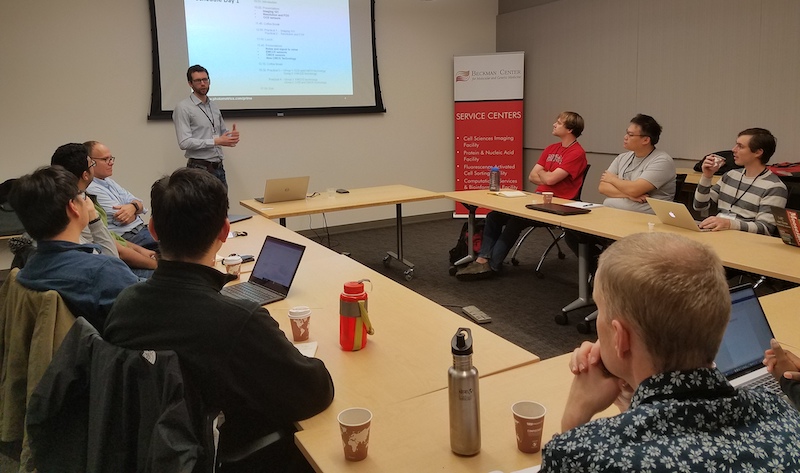
“The course absolutely helped me understand the most fundamental and important aspects of scientific imaging. Understanding Nyquist allows me to choose objective lens and cameras reasonably, and put FOV into my consideration during imaging!”
Dr. Szuyuan Pu, Postdoctoral researcher, Infectious Diseases
Stanford University
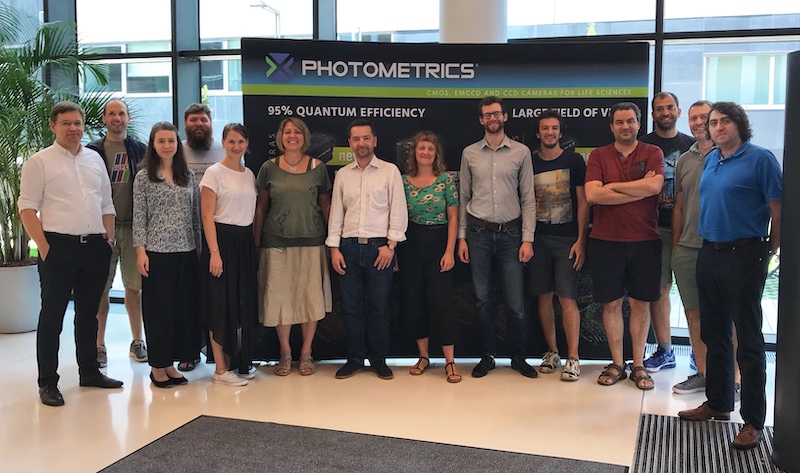
“This course should be a prerequisite for anyone practicing fluorescence microscopy.”
Henrietta Wulsin Bennett, Graduate student
Stanford University School of Medicine

“I found the course very interesting and useful. I really liked to learn how to compare cameras and how to characterize or measure their specifications.”
Pascal Lorentz, Head of BioOptics Facility
University of Basel
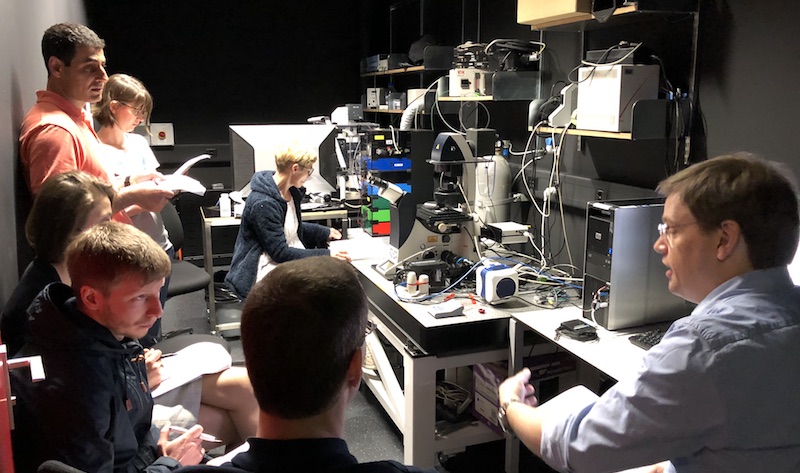
“Thanks again for organizing the camera course in Basel this week. I enjoyed the talks and learned quite a few details in the two days.”
Dr. Tom T.A. Lummen, Microscopy Engineer
Single Cell Facility | ETHZ D-BSSE
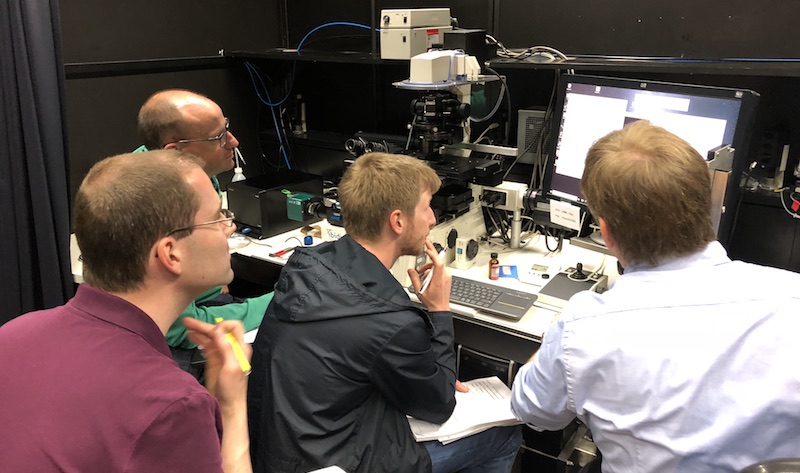
“Demystified the difference between EMCCD, CCD, and CMOS cameras and made the comparison of images possible down to the photon/electron level.”
Dr. Loic Sauteur, Postdoctoral Researcher (Roche Fellow)
University Hospital Basel
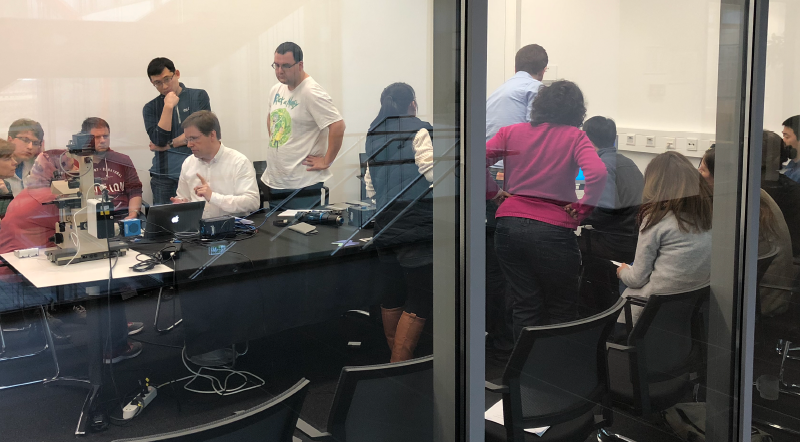
“It was an interesting and fruitful time participating in this camera course. The theoretical basics were presented in a well-thought-out manner and were deepened in the practical course, which is for me very important. I think every scientific user of a camera should apply to this course since it helps understanding what your devices do and therefore can improve your experiments drastically.”
Simon Wadle, PhD student
Physiology of Neuronal Networks, Kaiserslautern (Germany)
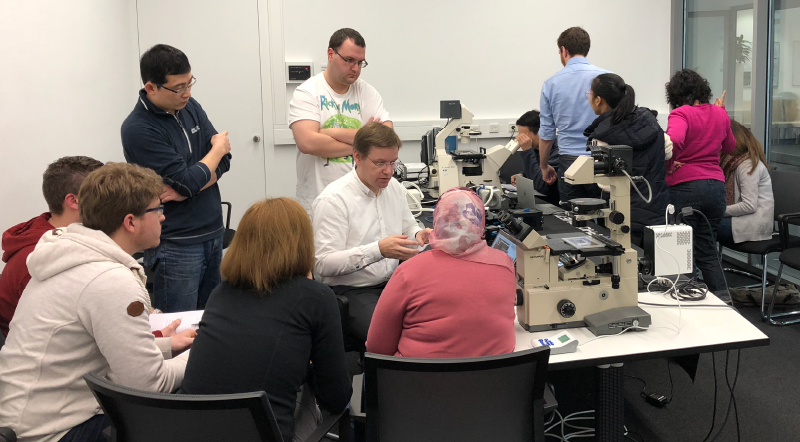
“The camera course was very enlightening. I learned a lot about the theory behind digital cameras following the motto: ‘What I always wanted to know about cameras, but never dared asking.’”
Elmar Krause PI, CIPMM
University of Saarland (Germany)

“I would thank you again for this efficient workshop. You guys made it comprehensible, easy and enjoyable, especially in the practicals. I would definitely recommend it to other colleagues/friends.”
Marwa Sleiman
University of Saarland (Germany)
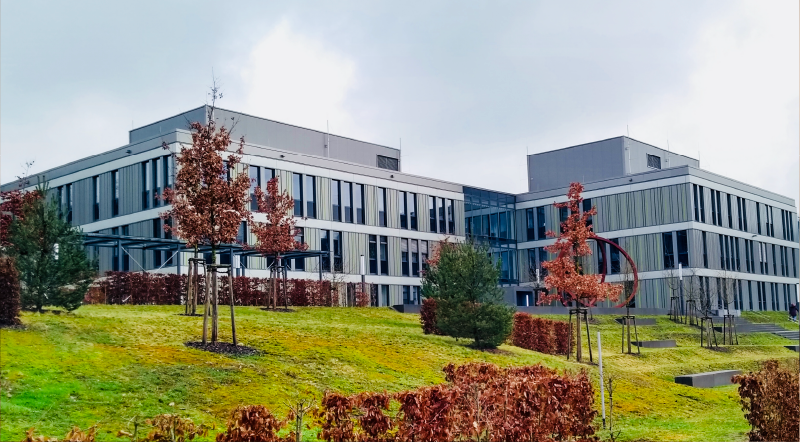
“I’m pretty new to imaging. It’s most certainly worthwhile participating in this course and I would definitely recommend it!”
Michael Wagner, Postdoc
Institute for Molecular Cell Biology
Homburg/Saar (Germany)

“I really enjoyed the course and in particular the talks.”
Rene Tinschert, PhD student
Institute for Pharmacology and Toxicology
Homburg/Saar (Germany)

“Thanks a lot for the course. All our colleagues who are related to imaging have been in the course already. The course gives a 101 introduction to all kinds of levels, which is very good.”
Qinghai Tian, Postdoc
Institute for Molecular Cell Biology
Homburg/Saar (Germany)
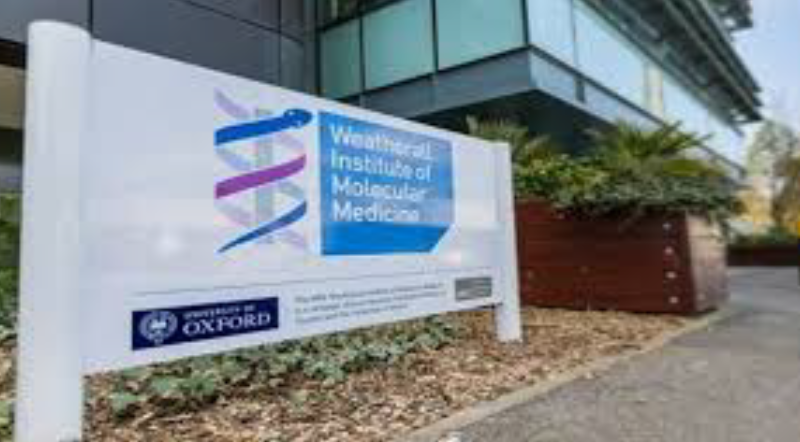
“I thought the camera course was an extremely valuable and time efficient learning opportunity. The lectures and practicals were well prepared as was the the course material. Overall the time spent was very effective and suitable for further dissemination to our microscopy core users.”
Chris Lagerholm, Imaging Facility Manager
Weatherall Institute of Molecular Medicine (WIMM)
University of Oxford
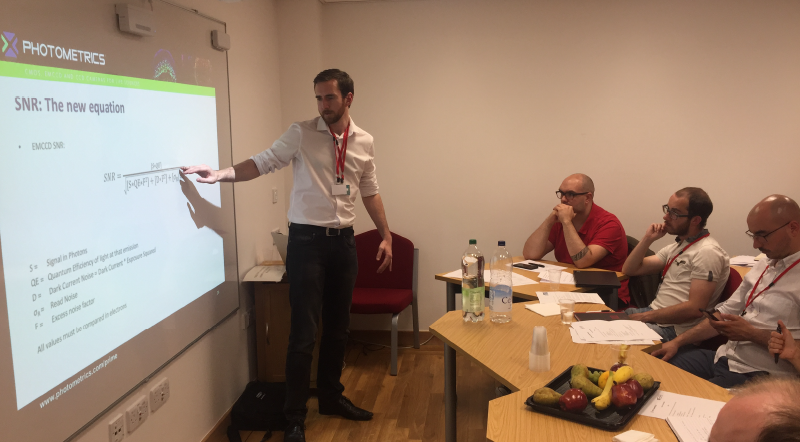
“I found the course was well run and provided a lot of background and detailed information. I learned a lot from the course, I would highly recommend the course to anyone that is using CMOS, EMCCD or CCD cameras.”
Ashling Holland, Post Doctoral Research Scientist
University of Oxford
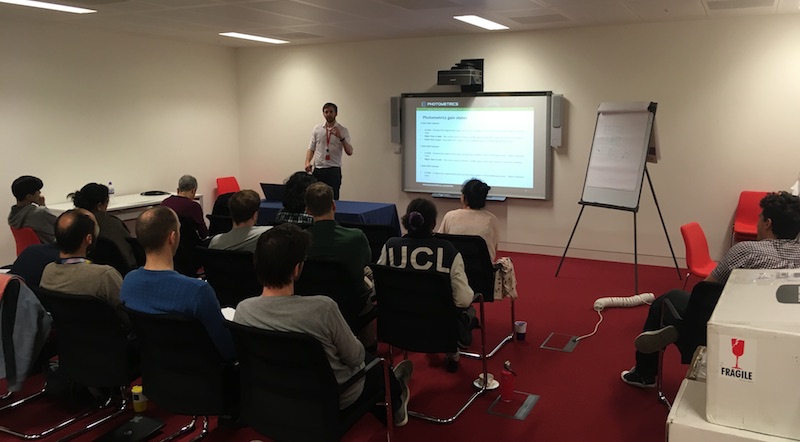
“The course was great, very interesting and informative. Would recommend it to anyone interested in scientific imaging.”
Daman Rathore
Volynski Lab
UCL
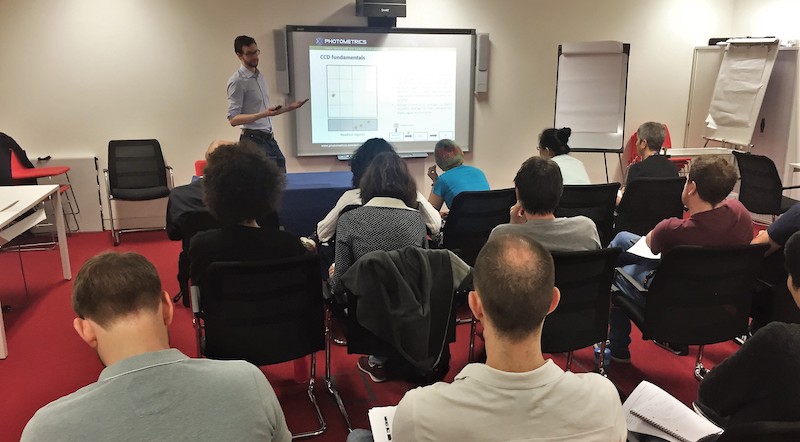
“I’m a cell biologist and have been doing imaging regularly for many years. The two day Teledyne Photometrics camera course was really useful for me to better understand how my images are generated and what the quantifiable values mean. It also helped me become familiar with features of microscopy imaging that would have otherwise remained incomprehensible jargon.”
Angika Basant
Way Lab, Francis Crick Institute, London
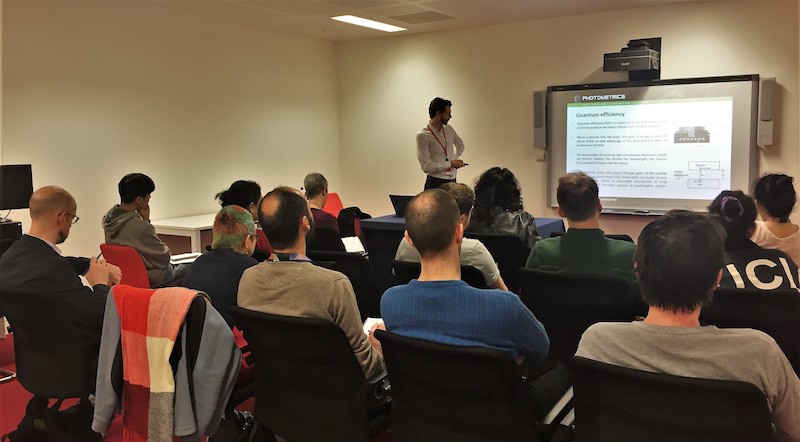
“It was very useful and I didn’t know there were so many things to learn about cameras; I think any scientist dealing with digital imaging should attend a course like this.”
Alessandro Ciccarelli, Light Sheet Specialist
CALM - Crick Advanced Light Microscopy Facility, Francis Crick Institute

“I found the course to be a very comprehensive presentation of all the key aspects of modern scientific cameras. Even with many years of camera experience, I took away a lot of very useful information!”
Nic Cade
Surrey Lab, Francis Crick Institute

















